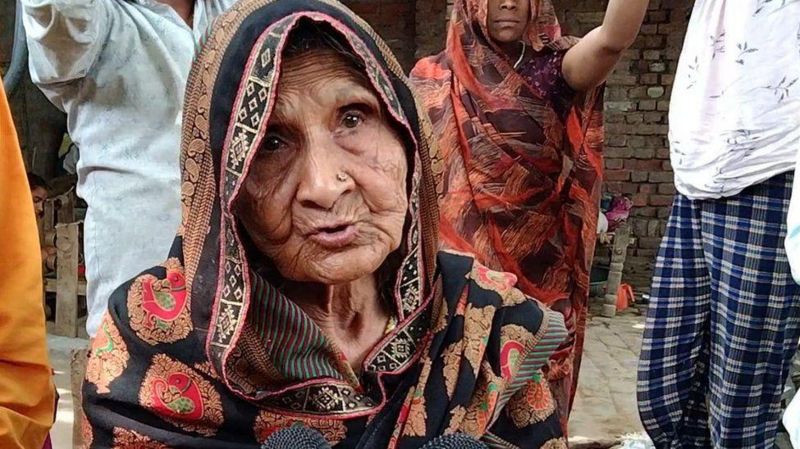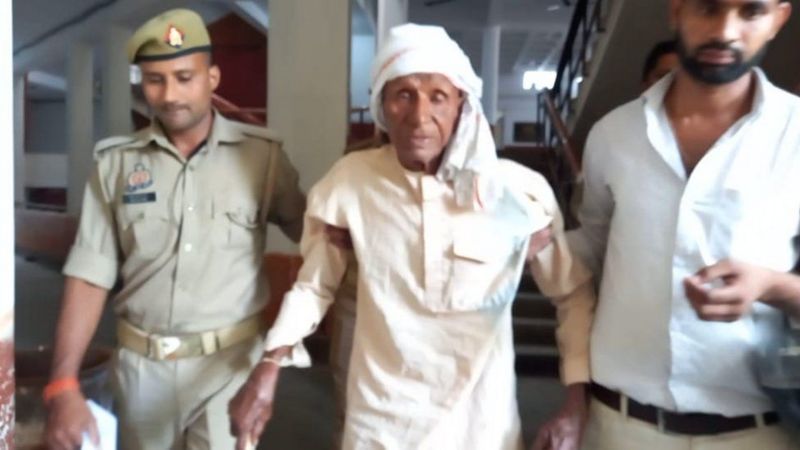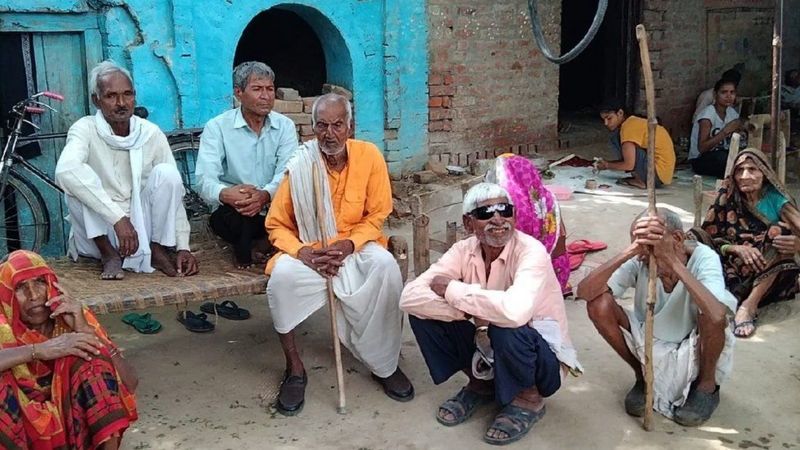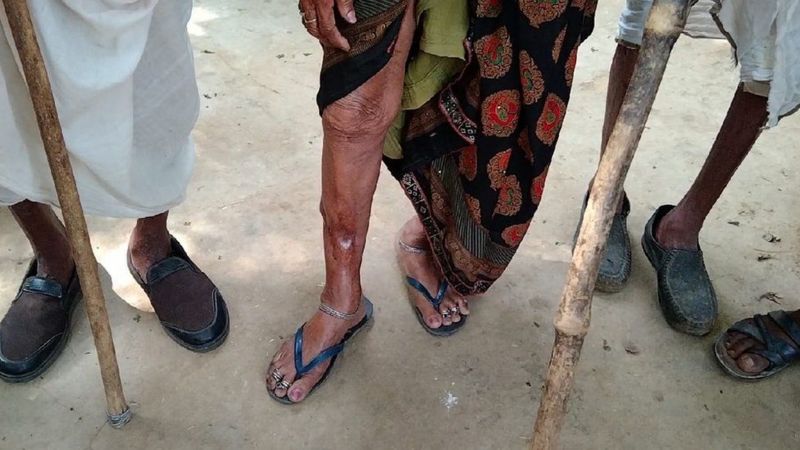Introduction
Samuel Little, the 90-year-old convicted of 10 murders, has been dubbed one of the deadliest serial killers in U.S. history. The recent conviction after a 42-year wait has brought closure to the families of the victims. The Samuel Little case is a reminder of the importance of persistence and thoroughness in solving cold cases.
Who is Samuel Little?
Samuel Little had a troubled childhood and a history of minor criminal offenses. He moved frequently and was known to travel around the country hitchhiking. Eventually, Little became known as a serial killer, perpetrating some of the most gruesome murders in U.S. history. His crimes went undetected for decades.
The Murders
Samuel Little strangled his victims to death and often disposed of their bodies in remote areas, making it difficult for law enforcement to identify the victims and link them to Little. He lured his victims by posing as a good Samaritan, offering a ride or a place to stay. The victims included women from all walks of life, including prostitutes and drug addicts, making it easy for Little to take advantage of them.
The Investigation
The investigation into Samuel Little's murders began in 2012, when the Los Angeles Police Department linked him to three unsolved homicides. Despite the LAPD's initial skepticism about Little's claims of murder, investigators ultimately determined that he was telling the truth. Unfortunately, Little refused to disclose the identities of his victims.
The Trial
The prosecution had a tough task piecing together the evidence against Little. They relied heavily on circumstantial evidence, including witness interviews, crime scene photos, and DNA analysis. The jury was deliberated for several days, and ultimately found Little guilty of first-degree murder.
The Guilty Verdict
When the guilty verdict was read, Little seemed unphased and entirely unemotional. The families of the victims, however, showed relief and expressed their gratitude to the court and prosecution for finally ending their years of waiting for justice. The verdict marked a turning point for the families of the victims and for the nation as a whole.
Impact of Samuel Little's Conviction
Little's conviction is significant because it sends a message to other perpetrators of cold cases that they will not escape justice indefinitely. It also provides closure for families who have had to live with unanswered questions for years and may inspire authorities to reexamine cold cases. Hopefully, more progress will be made in solving cold cases, bringing closure to families of missing persons.
The Psychology of Serial Killers
Serial killers are often characterized as intelligent, charming, and manipulative individuals. Inside, however, they are tormented by deep-seated psychological issues. Psychopathy, which is defined as a personality disorder characterized by a lack of empathy, guilt, and remorse, undoubtedly plays a fundamental role in the behavior of serial killers.
The Importance of Evidence
One of the most critical components of any criminal investigation is evidence. In serial murder cases, evidence such as hair, skin, or blood samples found at crime scenes can be crucial for identifying suspects. However, collecting, preserving, analyzing, and presenting that evidence is a painstaking job that requires expertise and attention to detail.
The Criminal Justice System
The criminal justice system is a complex machine that involves many different components, including law enforcement, prosecutors, defense attorneys, judges, and juries. Each step in the process presents unique challenges. Enhancing trust and maintaining a balance between safety and freedom require significant resources and expertise.
Race and Justice
Samuel Little's case raises questions about the role that race plays in criminal justice. Many experts argue that people of color are disproportionately affected by the criminal justice system. In Little's case, the fact that some of his victims were African American, transgender, or drug-addicted may have contributed to law enforcement's lack of urgency in investigating his crimes.
The Death Penalty
The death penalty debate remains unresolved in the United States. Opponents argue that it is cruel, inhumane, and inherently flawed because it is irreversible. Supporters argue that it is a necessary deterrent to prevent the most heinous crimes and necessary revenge to bring closure for victims' families. Samuel Little's conviction reopens the conversation on capital punishment.
The Consequences of Unsolved Murders
Unsolved murders have a far-reaching psychological impact on families, communities, and even law enforcement. The unresolved doubts, pain, and anxiety that victims' families experience may continue for decades as they search for answers. Cold cases require an enormous amount of effort and expertise for a successful outcome.
The Future of Cold Case Investigations
The Samuel Little case has shown that solving a 40-year-old case is still possible. Cutting-edge technology such as DNA sequencing and facial recognition are making it increasingly possible to identify suspects and victims of cold cases. With continued investment in these areas, we can increase the chances of bringing closure to families of missing persons.
Samuel Little's Legacy
Samuel Little's crimes have left an indelible mark on the United States. The victims' families will always be haunted by the events surrounding Little's crimes. His case provides an opportunity to give voice to victims of violence and a reminder to prioritize the importance of public safety and justice.
The Responsibilities of Law Enforcement
Law enforcement officers must be held accountable for their actions and decisions in the course of their investigations. Proper training, evidence management, and supervisory oversight are necessary to ensure they are following best practices and finding the truth.
Justice for the Victims
Justice for the victims is not just about obtaining convictions. It is about providing closure for the families and justice for those who have been wronged. When law enforcement, legal communities, and society as a whole commit to this cause, we can make a real difference in the lives of victims and their families.
Conclusion
The Samuel Little case reminds us of the value of patience, tenacity, and expertise in solving cold cases. It also highlights the importance of preserving evidence, reassessing the role of racial biases and the criminal justice system, and bringing closure to the families of victims. We need to continue our efforts at using technological advances in the field to support further investigation.
FAQ
What Kind of Evidence Was Used to Convict Samuel Little?
The prosecution relied on circumstantial evidence, including witness interviews, crime scene photos, and DNA analysis.
What Impact Will Samuel Little's Case Have on Cold Cases?
Little's conviction is significant because it sends a message to other cold-case perpetrators that they will not escape justice indefinitely. It also provides closure for families who have had to live with unanswered questions for years and may inspire authorities to reexamine cold cases, leading to more progress being made in solving cold cases.
What Can Law Enforcement Do to Improve their Investigations of Cold Cases?
Law enforcement can prioritize the use of cutting-edge technology and continue to invest in DNA sequencing and facial recognition to help identify suspects and missing persons. They can also make sure they are following best practices and ensuring sufficient supervision and accountability.







0 Comments